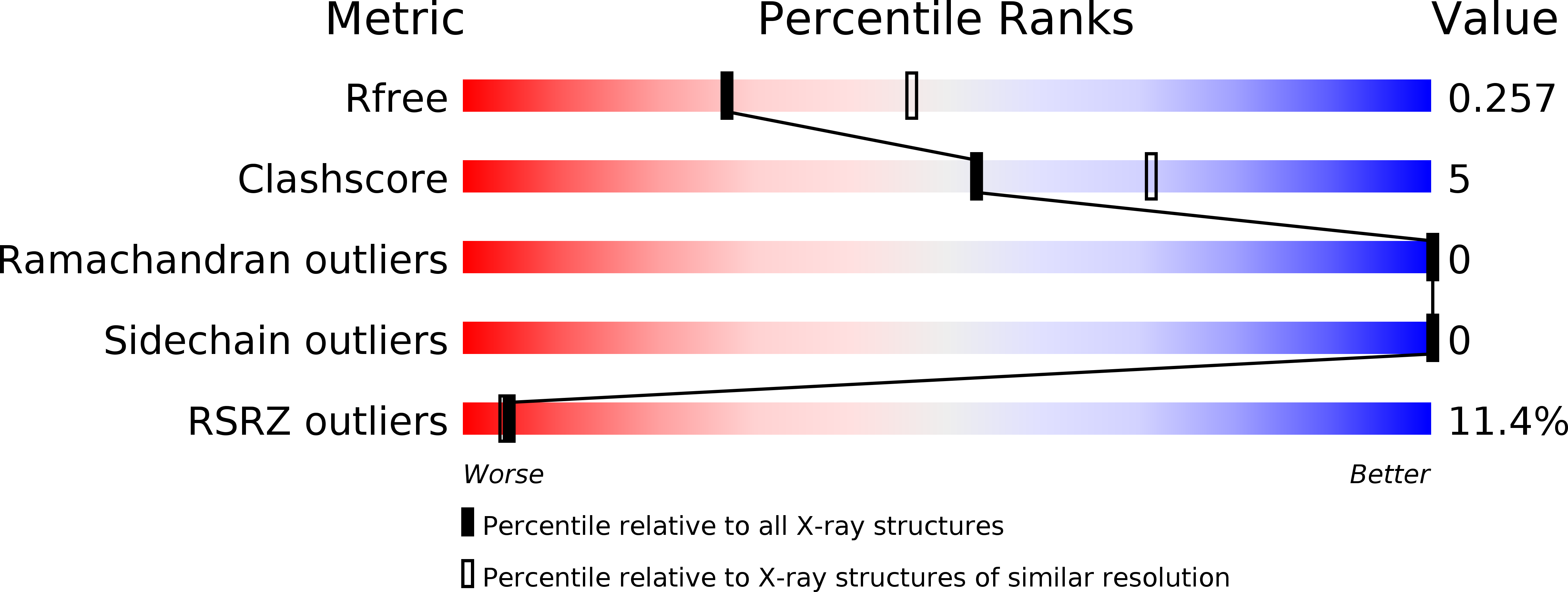
Deposition Date
2019-10-21
Release Date
2020-04-29
Last Version Date
2024-01-24
Entry Detail
PDB ID:
6T78
Keywords:
Title:
Structure of human Sox11 transcription factor in complex with a short DNA fragment
Biological Source:
Source Organism(s):
Homo sapiens (Taxon ID: 9606)
synthetic construct (Taxon ID: 32630)
synthetic construct (Taxon ID: 32630)
Expression System(s):
Method Details:
Experimental Method:
Resolution:
2.50 Å
R-Value Free:
0.25
R-Value Work:
0.22
R-Value Observed:
0.22
Space Group:
P 61


